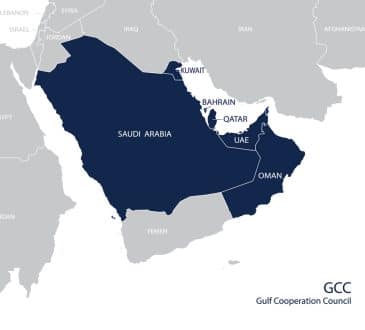America’s 25 Best Cities For Retirement In 2014: Retirement-Friendly Destinations

If you’re looking for a retirement-friendly destination to spend your golden years, Forbes magazine has compiled a list of the 25 best cities in America to retire. So, what makes a city a retirement-friendly destinations ?
Which of these cities appeals to you most?
There are many factors to consider, from crime rates, air quality, weather, active-lifestyle, walkability, bicycling, volunteering, living costs, taxes, housing costs, and doctor availability. With that in mind, take a look at the 25 best U.S. cities to retire in 2014 (cities are listed in alphabetical order) — and let us know what you think in comments or tweet @ceoworld.
25. Venice, FL
Pros: Warm Gulf Coast climate, above average air quality, cost of living at national average, median home price $196,000, low crime.
Con: Low walkability rating.
24. Tucson, AZ
Pros: Warm climate, above-average air quality, cost of living 4% below national average, typical home price $172,000, abundant doctors per capita, high rank for bicycling and volunteering.
Con: High crime rate, so-so economy.
23. State College, PA
Pros: College town, good economy, average home price $259,000, low crime, high walkability rank.
Con: Cost of living 5% above national average.
22. San Angelo, TX
Pros: Warm climate, booming economy, cost of living 9% below national average, median home price $175,000.
Con: Low walkability rating.
21. Salt Lake City, UT
Pro: Moderate climate, above average air quality, terrific economy, cost of living 5% below national average, typical home price $226,000, abundant doctors per capita, high grades for bicycling, volunteering and walkability.
Con: High crime rate
20. Port Saint Lucie, FL
Pros: Warm coastal climate, above average air quality, cost of living 5% below national average, typical home price $140,000, low crime rate.
Con: So-so economy.
19. Pittsburgh, PA
Pros: Solid economy, average cost of living, typical home price $130,000, large number of doctors per capita, high ranks for volunteering, bicycling and walkability.
Cons: High crime rate, cold winters.
18. Oklahoma City, OK
Pros: Good economy, cost of living 7% below national average, typical home price $161,000, good state tax climate, high volunteering rank.
Cons: high crime rate, sometimes violent weather.
17. Ogden, UT
Pros: Good economy, cost of living 12% below national average, median home price $124,000, good state tax climate, low crime, high volunteering rank.
Con: Low doctors per capita.
16. Morgantown, WV
Pros: College town (West Virginia University), good economy. cost of living 8% below national average, typical home price $185,000, good state tax environment, abundant doctors, good walkability rank.
Cons: Cold winters, below-average air quality.
15. Las Cruces, NM
Pros: College town (New Mexico State University), good economy, cost of living 8% below national average, median home price $176,000, good state tax environment, warm, dry climate.
Cons: Low doctors per capita, low walkability rank.
14. Fredericksburg, TX
Pros: Warm climate, above average air quality, cost of living 5% below national average, median home price $138,000, low crime, high walkability rank.
13. Fargo, ND
Pros: Gangbusters economy, cost of living 8% below national average, typical home price $165,000, abundant doctors per capita, above average air quality, high marks for bicycling and volunteering.
Con: Cold winters.
12. Clemson, SC
Pros: college town, warm climate, above-average air quality, cost of living about national average, typical home price $135,000, good state tax climate, low crime, high walkability rank.
11. Charleston, SC
Pros: Water frontage, warm climate, robust economy, good state tax environment, cost of living about national average, typical home price $$228,000, low crime, high bicycling grade.
Con: Low marks for volunteering.
10. Cape Coral, FL
Pros: Gulf of Mexico frontage, warm climate, above average air quality, cost of living at national average, median home price $165,000, low crime, high marks for volunteering.
Cons: So-so economy, low walkability rating.
9. Brevard, NC
Pros: scenic town amid waterfalls, moderate climate, cost of living 3% below national average, typical home price $195,000, low crime, high walkability rating.
8. Bowling Green, KY
Pro: College town (Western Kentucky University), decent economy, cost of living 6% below national average, average home price $138,000, warm climate, low crime rate.
Con: Low walkability rank.
7. Boise, ID
Pros: Dry climate, good economy, cost of living about at national average, average home price $168,000, low crime, high rankings for walkability, bicycling and volunteering.
Cons: Cost of living 4% above national average.
6. Bluffton, SC
Pros: Scenic waters, warm climate, good state tax environment, average home price $197,000, low crime, highly walkable.
Cons: Cost of living 8% above national average.
5. Blacksburg, VA
Pros: College town (Virginia Tech), strong economy, cost of living 7% below national average, average home price $210,000, mild climate, low crime.
4. Bellingham, WA
Pros: College town, good economy, average home price $266,000, above-average air quality, low crime, highly walkable.
Cons: Cost of living 9% above national average, poor state tax climate.
3. Austin, TX
Pros: Terrific economy, warm weather, cost of living at about national average, low crime, high grades for bicycling and volunteering.
Con: Average home price, $225,000, above national average.
2. Auburn, AL
Pros: College town, good economy, toasty climate, cost of living 11% below national average, average home price $165,000, low crime.
Con: Few doctors per capita.
1. Abilene, TX
Pros: Robust economy, warm climate, cost of living 13% below national average, average home price $139,000 (national average: $207,000).
Con: Not very walkable.
Add CEOWORLD magazine to your Google News feed.
Follow CEOWORLD magazine headlines on: Google News, LinkedIn, Twitter, and Facebook.
This report/news/ranking/statistics has been prepared only for general guidance on matters of interest and does not constitute professional advice. You should not act upon the information contained in this publication without obtaining specific professional advice. No representation or warranty (express or implied) is given as to the accuracy or completeness of the information contained in this publication, and, to the extent permitted by law, CEOWORLD magazine does not accept or assume any liability, responsibility or duty of care for any consequences of you or anyone else acting, or refraining to act, in reliance on the information contained in this publication or for any decision based on it.
Copyright 2024 The CEOWORLD magazine. All rights reserved. This material (and any extract from it) must not be copied, redistributed or placed on any website, without CEOWORLD magazine' prior written consent. For media queries, please contact: info@ceoworld.biz
SUBSCRIBE NEWSLETTER








